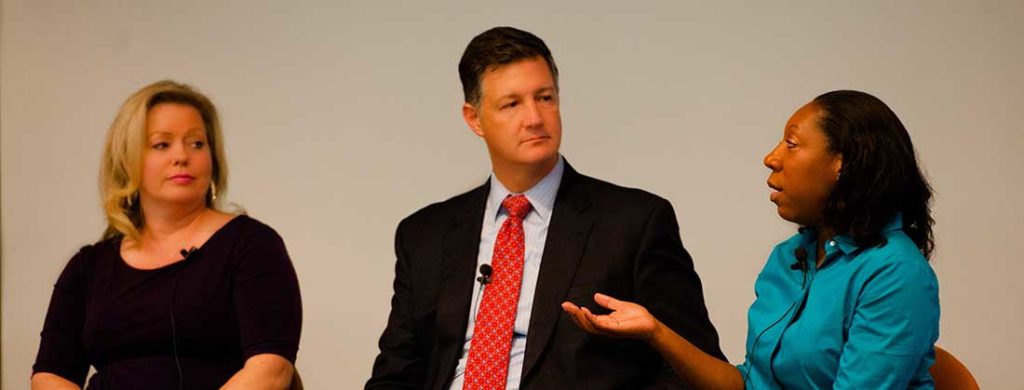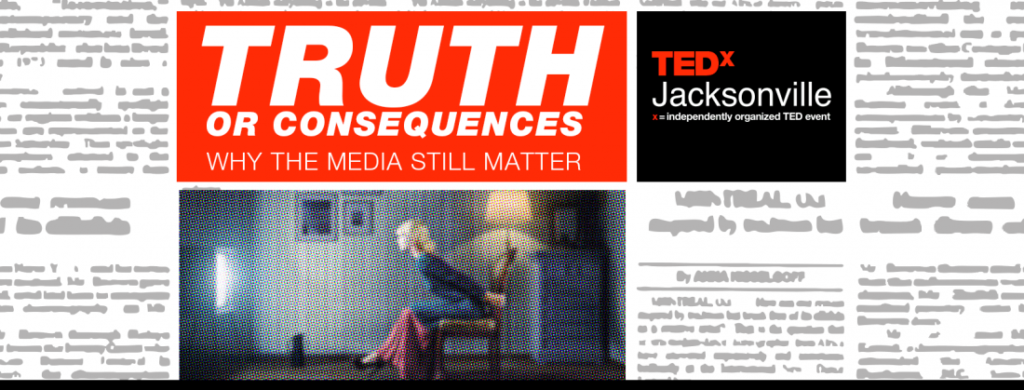

On Wednesday, May 24, 2017, TEDxJacksonville hosted a salon, “Truth or Consequences: Why the Media Still Matter,” exploring the way traditional media outlets are forced to navigate this changing environment.
Moderated by Ryan Benk, a reporter for WJCT, the event featured a panel of prominent voices in Northeast Florida media:- Ennis Davis, cofounder and blogger for Modern Cities and Metro Jacksonville
- Kent Justice, anchor for WJXT TV-4/News4Jax
- Tia Mitchell, statehouse bureau chief for The Florida Times-Union
- Mary Kelli Palka, editor of The Florida Times-Union
- Melissa Ross, host of “First Coast Connect” on WJCT 89.9 FM





